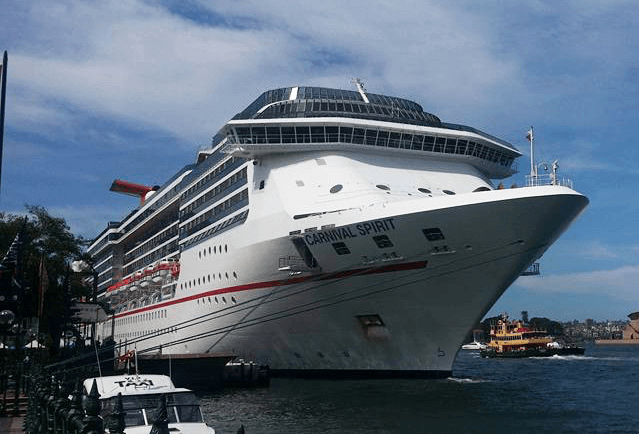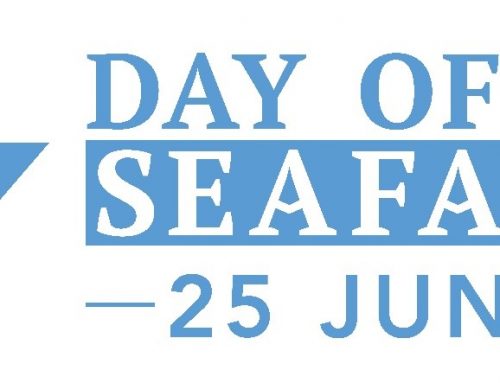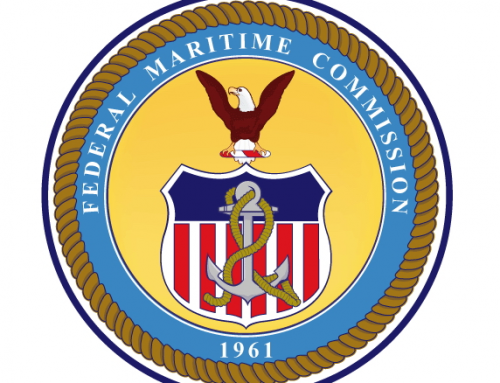According to an article in The Maritime Executive, many cruise lines are being challenged with how to handle the crew aboard their ships in the face of the continuing COVID-19 public health crisis. Though the cruise lines maintained their full crew during the initial emergency suspension of operations, now many of the cruise lines have begun working to repatriate non-essential crew members.
Approximately 300 ocean-going cruise ships, with over 200,000 crew members, are sailing around the world, with the largest portion in North America. Currently, it is estimated that there are 52,000 crew members aboard 73 cruise ships, either moored or anchored in or near U.S. ports, according to the U.S. Coast Guard (USCG). Almost half of those are in Florida.
When the spread of COVID-19 precipitated the initial operational pause in mid-March, the cruise ships tasked their full staff with various training, maintenance, and health initiatives. The hotel crews were put to work deep-cleaning the ships, exercise programs were instituted, while staff meetings and job training programs also continued. To better stay in contact with distant family and friends, internet access was improved for the crew, as well.
With current circumstances making the operational suspension very likely to be extended, the cruise lines have begun shifting management priorities to reduce their financial costs. While each company may take a somewhat different approach to this, the cruise lines’ spokespeople have been reluctant to confirm details, Norwegian Cruise Line Holdings, Royal Caribbean Cruises, and others, all appear to be working to reduce the numbers of the non-essential crew onboard. Hotel staff is generally being furloughed, while other crew contracts are being suspended or terminated.
“Obviously it is not an easy task to suddenly send crew-members home, as they are from many different geographical locations throughout the world,” says C. Patrick Scholes, an analyst with SunTrust Robinson Humphrey. “Bottom line, this is an industry under extreme financial pressure, and the cruise lines have to find any way to cut costs, this being one such method.”
Non-essential crew members who cannot be transported home or choose not to travel are being allowed to stay onboard, without any pay, but with food, lodging, and medical care provided. Meanwhile, the essential crew in the navigation and engineering departments, plus the staff that provides their food and services, are continuing under their current employment contracts.
According to crewmembers speaking with the website Crew-Center.com, the cruise lines have been shifting ships around, in order to repatriate non-essential crew. International travel restrictions have been complicating these efforts, however. Additionally, the U.S. Centers for Disease Control and Prevention (“CDC”) also recently “updated its recommendations to help U.S. cruise ship travelers (passengers and crew) get home as quickly and safely as possible during the COVID-19 pandemic.” The CDC now requires that: all travel be completed on private or charter transportation; everyone needs to wear a face mask or cloth face covering; maintain social distancing; and stay home for at least 14 days after reaching their destination. The cruise lines also have been directed to improve onboard medical facilities and to keep crew members who have reported symptoms onboard coordinating with the Coast Guard, to address evacuations only when deemed medically necessary.
To work within these restrictions, several unusual logistical moves have been made to complete the reparations of crew members. According to reports on the website Crew-Center.com, Royal Caribbean Cruises transferred many crew members between several of its ships, which are now sailing to Indonesia, the Philippines and Shanghai, with a reported combined total of over 2,500 crew members. Carnival Australia, P&O Australia, and Princess Cruises reportedly also are responding to Australia’s order for foreign cruise ships to depart the region, using ships to transport crew to Indonesia and the Philippines.
The same travel restrictions that are complicating the efforts to return crew to their homes may make it difficult to bring the ships back into service. Robert Kwortnik, an associate professor at Cornell’s School of Hotel Administration, points out: “Even when governments declare an all-clear, the industry will face significant challenges in re-crewing ships. The typical cruise ship has crew from all over the world, but whether this crew will be available when the industry is ready to set sail again will demand a massive coordinated effort.”
Re-crewing challenges may impact the future of the cruise industry short-term; analyst Scholes said: “these ships are not about to start sailing with customers anytime soon. Not having adequate staffing will make it harder to quickly resume sailings.” Many industry experts predict the resumption of normal travel patterns may take much longer than was predicted originally. The efforts by the cruise lines to repatriate crew members reflect this, along with their need to relieve financial pressure these corporations face for the foreseeable future.
The above is a summary of one or more news stories reviewed by the author of this article. It may contain comments or views of the author only.
This article is intended for general interest and does not constitute legal advice.







